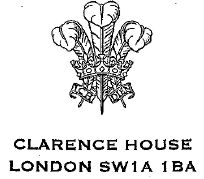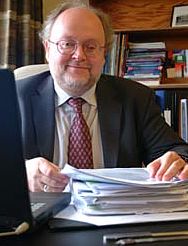Channel 4 TV, Monday 12th March. This is the title of the Channel 4 TV documentary, Dispatches.
Lord Wedderburn, QC, a life peer and Emeritus Professor of Law at the London School of Economics, tells the programme:
“If, in fact, nothing changed and he became King, then there would be a most almighty fuss and controversy, and eventually the whole fabric of the constitutional monarchy could be threatened.”
The Prince’s Foundation for Integrated Health (FIH) is the Prince’s lobby group which attempts to make the hard-pressed NHS spend more money on unproven and disproved treatments. The FIH publishes “Complementary Healthcare: a Guide for Patients”. This document is not just barmy, but positively dangerous. In the rebuttal of the programme on the FIH web site, they claim that they do not promote alternative medicine, but elsewhere on the site they state their aim as “makes safe and effective complementary therapies available to patients in conjunction with conventional healthcare”.
Which would be all very well if they didn’t consistently ignore the evidence for effectiveness.
The MHRA recently, for the first time, betrayed its brief to nake sure that medicines work and are safe. This action has been condemned by just about every professional organisation. Nobody knows exactly what caused them to lose their heads in this way, but it is clear that they were under pressure from both the Department of Health and from the Prince of Wales. The Department of Health is clearly sympathetic to quackery, as shown by the letter below, and by their refusal to allow alternative medicine to be referred to NICE for assessment.
| The MHRA admit to having had at least seven letters form the Prince of Wales, and we know that an MHRA member has met the Prince at Clarence House at least once. But all the contents are secret from the public. The Chairman of the MHRA Agency Board, Prof Alasdair Breckenridge, and chairman of their Herbal Medicines committee, Prof Philip Routledge, have both admitted to me to having had pressure from the Prince of Wales, but neither will give any details, despite having been condemned by their own professional organisation, the British Pharmacological Society. |  |
The Pharmacological Society’s statement read thus.
| The British Pharmacological Society believes that any claim made for a medicine must be based on evidence, and that it is the duty of the regulatory authorities, in particular the MHRA, to ensure that no claims can be made for the efficacy of any form of medicine unless there is good evidence that the claim is true. Despite many years of investigation, we have no convincing scientific evidence that homeopathic remedies work any better than placebo. Pharmacologists have noted frequently that most homeopathic products are diluted to the extent that they contain no molecule of active ingredient, that is, no medicine, which is highly misleading to consumers who are unlikely to recognise the expression “30C” for example. Furthermore, there are serious concerns, even in cases where they are used for minor ailments, that officially endorsed use of such remedies may put patients at risk of delayed diagnosis. The Society is therefore surprised that the national rules scheme for licensing homeopathic products, which came into force on 1 September (Statutory Instrument 2006 1952), will regard non-scientific data as evidence of efficacy. |
An excellent article on this topic was published by Rose in The Biologist, British health care regulation moves away from science.
The appalling treatment of Professor Edzard Ernst
| Edzard Ernst was the UK’s first professor of complementary medicine, and he is rather unusual in that field because he is totally honest, and very careful about evidence (something that has not always endeared him to the alternative medicine industry).
A letter was sent from Clarence House to the vice-chancellor of Exeter University, Steve Smith. The letter alleged a breach of confidence by Ernst. Having been sent a draft of the Smallwood report, Ernst was so horrified by the scientific standards in that document, he felt obliged, in the public interest, to speak out about it. Ernst was contacted by a newspaper, which had a copy of the draft, and described the initial findings as “outrageous and deeply flawed”. He added: “It is based on such poor science, it’s just hair-raising. The Prince … also seems to have overstepped his constitutional role” |

Prof Edzard Ernst. |
Prof Ernst was doing exactly what academics are meant to do. As a result he was subjected to a very prolonged disciplinary procedure, and for a year it was not obvious whether he’d keep his job. For a Prince, in a constitutional monarchy, to put pressure on a university to silence a conspicuously honest academic is just not acceptable.
The Prince of Wales behaviour was bad enough, but, to be generous, he is perhaps, a well-meaning but poorly educated man, filling in his time as best he can.
| In the story of Edzard Ernst, the behaviour of the Vice-Chancellor of Exeter University, Prof Steve Smith seems to me to be unforgivable. Instead of supporting his staff, and supporting academic freedom, he appeared to cower before the Clarence House letterhead. After keeping Prof Ernst on tenterhooks for an entire year he eventually deigned not to fire him in the most grudging and unpleasant way imaginable. |
 Prof. Steve Smith, Vice chancellor. |
That is illustrated by the end of Smith’s letter to Professor Ernst on 13th October 2006. It was shown on the TV programme, and is reproduced below.

Click to enlarge
The Daily Mail also has features on the healthiness of HRH’s own food lines, after his criticism of MacDonalds, Dutchy Original Sins, and here.
They are worth reading because the advice comes from Catherine Collins, a real dietician, not a nutribollocks guru.
Some responses The story was reported round the world.
Max Hastings (Guardian)
“To make good use of evidence, it is essential to possess not only intelligence, but a capacity for disciplined analysis. The prince has considerable virtues, a good heart notable among them. But he has always lacked discipline in his life and in his treatment of issues. Again and again, he gets himself into trouble by seeking to address matters that are, frankly, beyond his intellectual reach.”
This post has been transferred from the old IMPROBABLE SCIENCE page.


[…] example, there is the TV programme, “Charles, the Meddling Prince”, or, for a US view, see “Homeopathy: Holmes, Hogwarts, and the Prince of Wales“. And […]
[…] to make the hard-pressed NHS spend more money on unproven and disproved treatments” (dcscience.net/?p=89), and his Duchy Originals brand has been criticised by bloggers and fallen foul of the MHRA. Little […]
[…] on honest labels. I do hope that this was not a result of pressure from the Prince of Wales. We know he has lobbied Kent Woods and Philip Routledge. Incidentally, Routledge is president elect of the British […]
[…] fassen, der Privatsekretär von Prinz Charles beschwerte sich über Edzard Ernst, der in der Folge “persona non grata”an seiner Universität […]
[…] over 1000 articles examining the evidence (or lack thereof) for specific CAM claims and modalities. Again David Colquhoun reports: A letter was sent from Clarence House to the vice-chancellor of Exeter University, Steve Smith. […]
[…] By 2007, the Medicines and Healthcare products Regulatory Agency had received at least seven letters… The contents of these are secret, as are, for the time being at least, the numerous letters he has written to government ministers. […]
[…] 4 TV documentary HRH “meddling in politics” […]